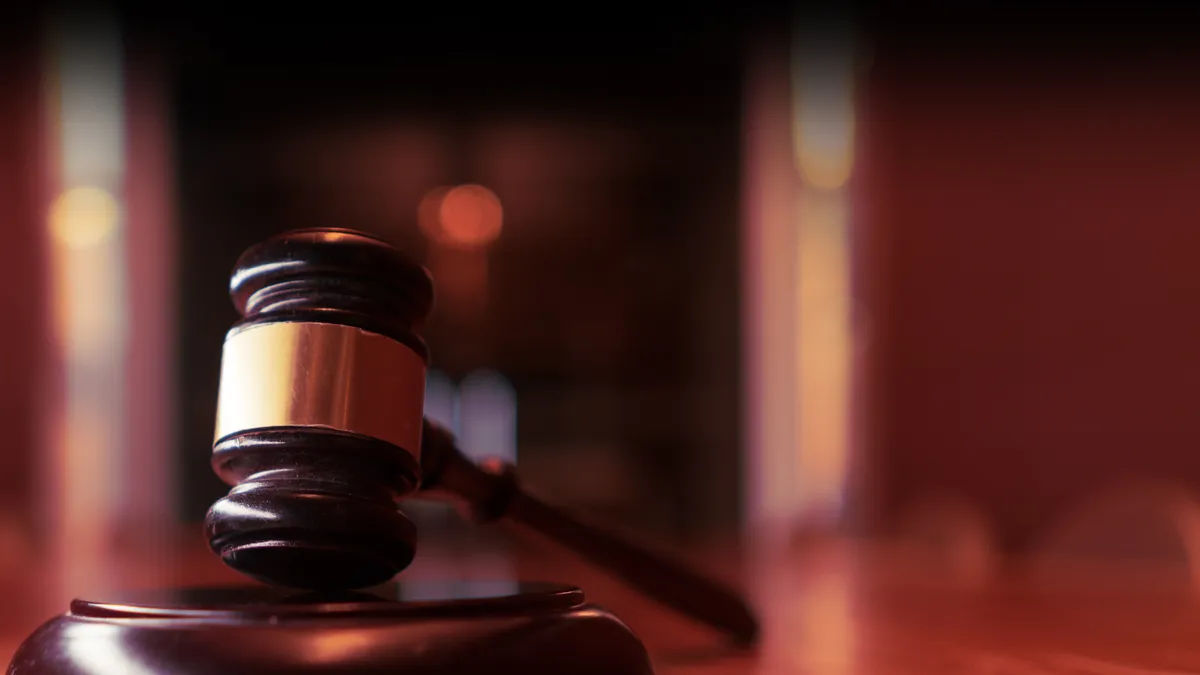Dive Brief:
- Educators can use mock trials — even defending a fairy tale character — to help bridge an understanding of how the judicial system works.
- This approach is best when educators step back and let students adopt the roles of judge or speaker of the U.S. House, said Anton Schulzki, interim executive director of the National Council for the Social Studies. By giving students more independence, Schulzki said, they can become absorbed in the lesson.
- “The minute you give students the opportunity to get hands-on, they get engaged in the inquiry process of asking questions,” he said.
Dive Insight:
There are many ways educators can introduce mock trials to the classroom, according to Schulzki.
Schulzki, who previously taught junior and high school social studies for 41 years, said he had students investigate well-known U.S. Supreme Court cases. In doing so, students start to approach the process as a litigator would, he said.
For instance, students would dig into the landmark decision in Tinker v. Des Moines, which established that students do not leave their First Amendment rights at the school door.
“They’ll start asking questions, such as ‘Why was wearing an armband a big thing?’" Schulzki said, adding that students come up with “questions a good lawyer and judge would ask.”
Other approaches Schulzki champions include mock trial programs run by groups including the American Bar Association. Additionally, educators can invite a judge to come to a classroom, arrange a field trip to a courtroom, or have students listen to audio recordings from Supreme Court case decisions online.
He added that even young students can start learning about the judicial process, noting “social studies is often ignored at the elementary school level.”
Putting the wolf on trial for going after the three little pigs is one way to engage young children, said Schulzki. Another is to use the classroom expectations that teachers help their students draft every fall to offer guidelines on treating each other respectfully throughout the year. Students could hold mock court to listen to offenses of rules that are broken — with careful supervision.
“Those done poorly can be a disaster, but when done well, they can be impactful,” he said.











